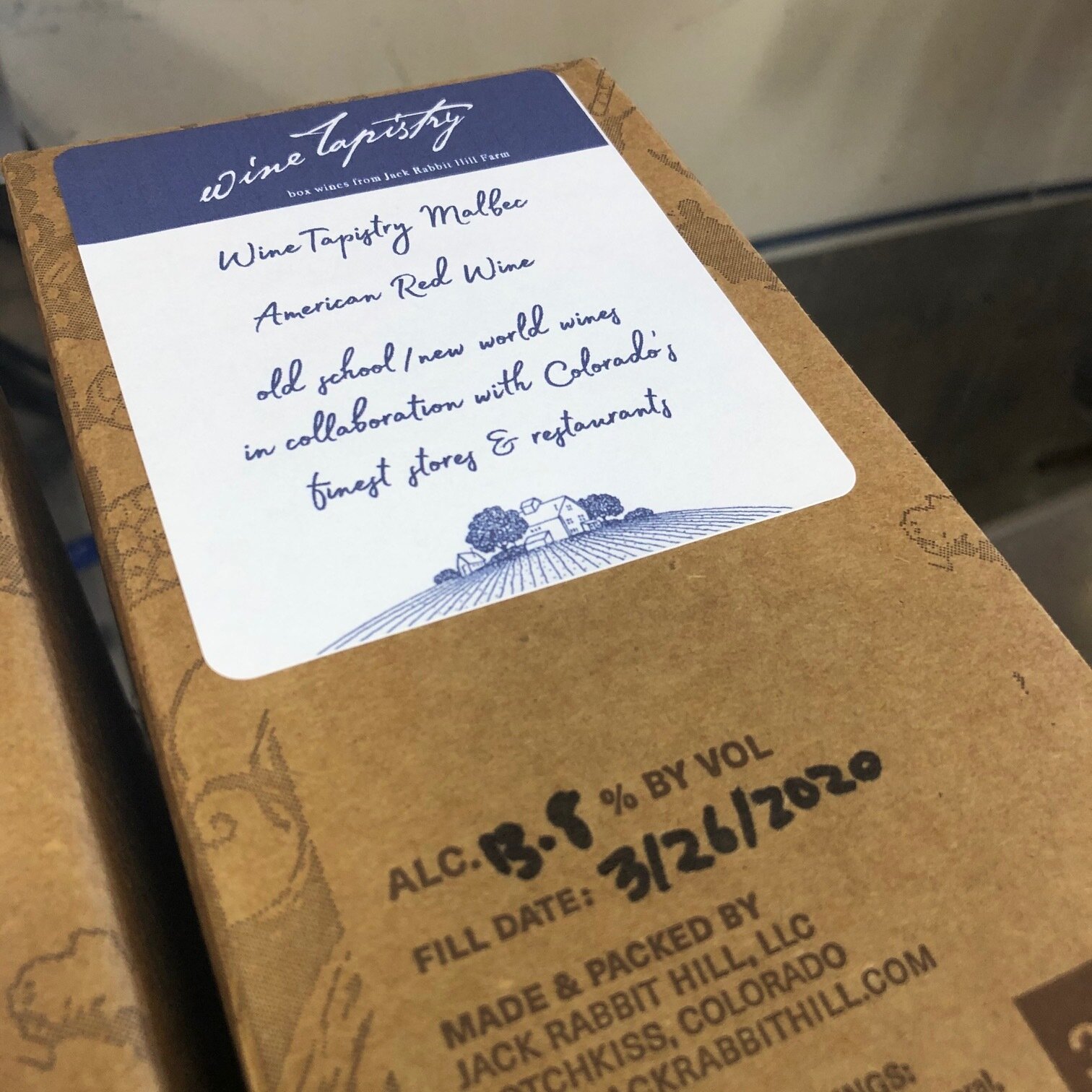Repurposing resources: how one maker is staying afloat during COVID-19
Written by Nicole Newman . Photography supplied by Jack Rabbit Hill Farm
Lance Hanson lost 80 percent of his revenue stream overnight.
Around the country, businesses have felt the effects of the spread of the COVID-19 pandemic. As schools go virtual, gyms become follow-along YouTube videos and restaurants replace dine-in with carry-out, other businesses have had to get creative to keep afloat. Among those businesses is Lance Hanson’s Jack Rabbit Hill Farm (JRHF), in Hotchkiss, CO, where biodynamic farming practices are key to developing their large inventory of wines, gins, vodkas and other beverages. The majority of their product is sold wholesale to restaurants and bars.
On Monday, March 16, 2020, when Gov. Jared Polis of Colorado ordered all bars and restaurants to close for 30 days in an effort to slow the spread of COVID-19, Hanson and his team at JRHF lost all but 20 percent of their revenue stream, causing them to go into “start-up mode” and find a way to keep the farm’s doors open.
“We’re a week into this ‘new world’ as I’ve been calling it, and we’re having to move very quickly to figure out how we can take the assets that we have — equipment, knowledge of fermenting, distilling and biodynamic farming and the customer base we’ve developed over the years — and repurpose them,” Hanson said.
The morning after Gov. Polis’ announcement, Hanson brainstormed with two of his team members, and the trio developed a recipe for hand sanitizer. The star ingredient? A high-proof version of JRHF’s CapRock Gin. The gin is 65 percent alcohol (which means it’s 130 proof), certified organic, has nice subtle aroma, and is “soft on the hands,” according to Hanson. By the end of the day on Tuesday, the hand sanitizer was prototyped and packaging had been designed. On Wednesday, JRHF ordered supplies for production. In the past week, they’ve sold about 100 cases, or 1,200 bottles, to local stores.
“(We’re) selling this to our store customers and they’ve loved it,” Hanson said. “Everyone needs hand sanitizer now and (the product) has the secondary benefit of having the CapRock identity.”
Fast-forward to today, March 26. Just 10 days after the governor’s announcement, Hanson is preparing JRHF for mainstream production of the new hand sanitizer. He hopes to sell it to larger chain stores.
In addition to the hand sanitizer, Hanson also formulated a recipe for high proof vodka. Many restaurants use his MEII vodka in well drinks, and Hanson’s goal was to develop an uncut version of that. This idea bore an Everclear-like vodka called MEII-190. Hanson realized there was a market for do-it-yourself tincture and hand sanitizer makers, and 190-proof spirits make a great base for these DIY creations.
The third new retail development for JRHF has been a spin off of their WineTapistry program for restaurants. Previously, the farm was selling 9-liter and 18-liter boxes of wine that were often used as a restaurant’s house wine or wine-on-tap. Hanson realized that if he makes the boxes smaller, 3-liters, they’d be a popular retail item for the day-to-day consumer.
“In the new world, consumers turn out to be really interested in buying box wines in 3-liter boxes, just like there’s a bigger play for grain alcohol for sanitizers,” Hanson said. “So over this past weekend we started ramping up production of 3-liter boxes of wine for the new world of retail.”
Other ideas that have been tossed around by the JRHF team are aromatic candles and hand creams that would include Jack Rabbit Hill’s biodynamic wine. JRHF already has a medicinal hemp program, and brainstormed a new personal care products line called Jack Rabbit Hill Garden. While these programs and products are not yet available, JRHF is constantly developing new ideas to be able to sustain — and perhaps even grow — business in this uncertain landscape.
Visit jackrabbithillfarms.com for more information about Lance Hanson, JRHF’s various farming programs and practices and to purchase their delicious wines and spirits. And consider purchasing CapRock hand sanitizer, which will be available soon on their website, and on the shelves of Colorado stores.



